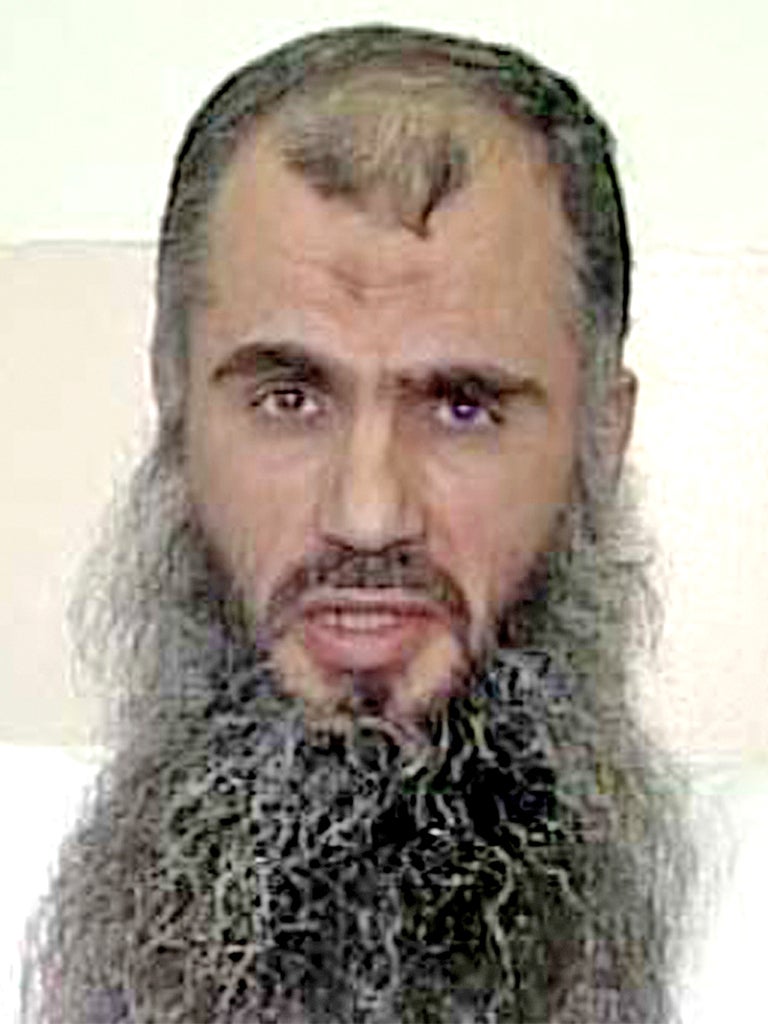Human rights court blocks Abu Qatada deportation
Ruling hardens dismayed Cameron's resolve to reduce the powers of European court

Your support helps us to tell the story
From reproductive rights to climate change to Big Tech, The Independent is on the ground when the story is developing. Whether it's investigating the financials of Elon Musk's pro-Trump PAC or producing our latest documentary, 'The A Word', which shines a light on the American women fighting for reproductive rights, we know how important it is to parse out the facts from the messaging.
At such a critical moment in US history, we need reporters on the ground. Your donation allows us to keep sending journalists to speak to both sides of the story.
The Independent is trusted by Americans across the entire political spectrum. And unlike many other quality news outlets, we choose not to lock Americans out of our reporting and analysis with paywalls. We believe quality journalism should be available to everyone, paid for by those who can afford it.
Your support makes all the difference.David Cameron is seeking to reform the European Court of Human Rights, which blocked the Government's attempt to deport the militant cleric Abu Qatada yesterday.
The Prime Minister has made no secret of his dismay over some of the rulings of the court in Strasbourg and next week will call for it to intervene far less frequently in cases that have already gone through national courts.
He is likely to cite the case of Qatada, described as "Osama bin Laden's right-hand man in Europe", as evidence of the pressing need to overhaul the operation of the ECHR.
Qatada, 51, is being held at Long Lartin high-security prison in Worcestershire. A succession of home secretaries have tried to return him to Jordan, where he has been convicted in his absence of plotting bomb attacks.
But the ECHR vetoed his deportation on the grounds that he could face trial using evidence obtained through torture, which would amount to "a flagrant denial of justice".
Theresa May, the Home Secretary, said she was disappointed by the ruling, but insisted the Government had not reached the "end of the road" in its efforts to expel Qatada.
She said he would remain in jail while "all the legal options" over his fate were considered.
The court did back the UK Government on another matter, ruling convicted murderers can be imprisoned for the entirety of their lives. It dismissed an appeal from Jeremy Bamber, Douglas Vinter and Peter Moore.
Mr Cameron will take advantage of Britain's presidency of the European Council to speak out on the need for reform and address the "massive backlog" of cases at the court next week.
Rights and wrongs: Jordan's 'abuses'
Torture carried out by state security forces and impunity for those who carry out such abuses on prisoners – many of whom were arrested and held without any prospect of a trial – were among the Jordanian human rights violations cited by Amnesty International in its comprehensive report on the country last year.
Human Rights Watch also reported "credible allegations of severe beatings of Islamists in custody by security forces" last year, describing how "shackled" detainees were beaten "on the head, back, and other body parts for about three hours".
Join our commenting forum
Join thought-provoking conversations, follow other Independent readers and see their replies
Comments